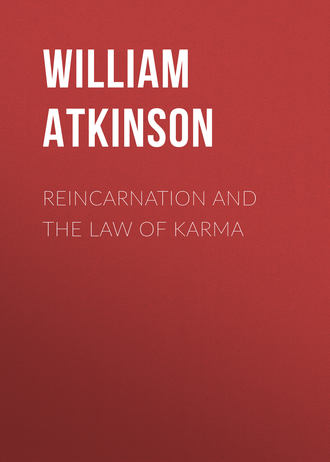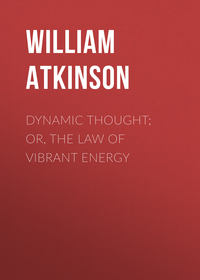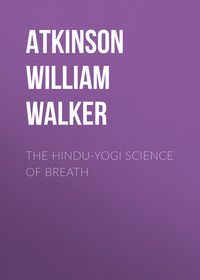
Reincarnation and the Law of Karma
Then we must note another objection often made by people in discussing Reincarnation. They say, "But I do not WANT to come back!" To this the Reincarnationists answer that, if one has reached a stage in which he really has no desire for anything that the earth can offer him, then such a soul will not likely have to reincarnate again on earth, for it has passed beyond the need of earthly experiences, and has worn out its earth Karma. But they hold that but few people really have reached this stage. What one really means is that he does not want any more of Earth – life similar to that which he has been undergoing. But if he thought that he could have certain things – riches, position, fame, beauty, influence, and the rest of it, he would be perfectly willing to "come back." Or else he might be so bound by links of Karma, acting by reason of Love or Hate, Attachment or Repulsion, or by duties unperformed, or moral debts unpaid, that he might be brought back to work out the old problems until he had solved them. But even this is explained by those Reincarnationists who hold to the idea of Desire as the great motive power of Karma, and who hold that if one has risen above all earthly desire or dislike, that soul is freed from the attraction of earth-life, and is prepared to go on higher at once, or else wait in realms of bliss until the race is ready to pass on, according to the various theories held by the various advocates of the doctrine. A little self-examination will show one whether he is free from all desire to "come back," or not. But, after all, if there is Ultimate Justice in the plan, working ever and ever for our good and advancements, as the Reincarnationists claim – then it must follow that each of us is in just the best place for his own good at the present moment, and will always be in a like advantageous position and condition. And if that be so, then there is no cause for complaint or objection on our part, and our sole concern should be in the words of the Persian sage, to "So live, that that which must come and will come, may come well," living on one day at a time, doing the best you know how, living always in the belief that "it is well with us now and evermore," and that "the Power which has us in charge Here will have us in charge There." There is a good philosophy for Living and Dying. And, this being true, though you may have to "come back," you will not have to "go back," or fall behind in the Scale of Advancement or Spiritual Evolution – for it must always be Onward and Upward on the Ladder of Life! Such is the Law!
Another objection very often urged against the doctrine of Reincarnation is that "it is un-Christian, and derived from pagan and heathen sources, and is not in accord with the highest conceptions of the immortality of the soul." Answering this objection, it may be said that, insofar as Reincarnation is not a generally accepted doctrine in the orthodox Christian Churches of today, it may be said to be non-Christian (rather than un-Christian), but when it is seen that Pre-existence and Rebirth was held as Truth by many of the Early Fathers of the Church, and that the doctrine was finally condemned by the dominant majority in Church Councils only by means of the most severe methods and the exercise of the most arbitrary authority, it may be seen that in the opinion of many of the most eminent early authorities there was nothing "un-Christian" about it, but that it was a proper doctrine of the Church. The doctrine was simply "voted down," just as were many important doctrines revered by some of the great minds of the early church, in some cases the decision being made by a majority of one vote. And, again, there have been many bright minds in the Christian Church who persisted in the belief that the doctrine was far more consistent with the Inner Teachings of Christianity than the prevailing conception, and based upon quite as good authority.
So far as the charge that it is "derived from pagan and heathen sources" is concerned, it must be answered that certainly the doctrine was accepted by the "pagan and heathen" world centuries before the dawn of Christianity, but, for that matter, so was the doctrine regarding the soul's future generally accepted by orthodox Christianity – in fact, nearly every doctrine or theory regarding the survival of the soul was "derived from pagan and heathen sources." The "pagan and heathen" mind had thought long and earnestly upon this great problem, and the field of thought had been pretty well covered before the advent of Christianity. In fact, Christianity added no new doctrine – invented no new theory – and is far from being clear and explicit in its teachings on the subject, the result being that the early Christians were divided among themselves on the matter, different sects and schools favoring different doctrines, each and all of which had been "derived from pagan and heathen sources." If all the doctrines regarding the immortality of the soul are to be judged by the test of their having been, or not been, "derived from pagan and heathen sources," then the entire body of doctrine and thought on the subject must be thrown out of the Christian mind, which must then endeavor to create or invent an entirely new doctrine which has never been thought of by a "pagan or heathen" – a very difficult task, by the way, considering the activity of the pagan and heathen mind in that respect. It must be remembered that there is no authoritative teaching on this subject – none coming direct from Jesus. The Christian Doctrines on the subject come from the Theologians, and represent simply the views of the "majority" of some Church Council – or of the most powerful faction.
While the objection that Reincarnation "is not in accord with the highest conceptions of the immortality of the soul" is one that must depend almost entirely upon the personal bias or opinion of the individual as to what constitutes "the highest conceptions," still a comparison of the conceptions is not out of the way at this place. Do you know what was the doctrine favored by the dominant majority in the Church Councils, and for which Pre-Existence and Re-Birth finally was discarded? Do you know the dogma of the Church and the belief of masses of the orthodox Christians of the early centuries? Well, it was this: That at the death of the body, the person passes into a state of "coma," or unconsciousness, in which state he rests today, awaiting the sound of the trumpet of the great Day of Judgment, when the dead shall be raised and the righteous given eternal life IN THEIR FORMER BODIES, while the wicked in their bodies may pass into eternal torment. That is the doctrine. You doubt it? Then look over the authorities and examine even the current creeds of today, many of which state practically the same thing. This belief passed into one of the Christian Creed, in the words: "I believe in the Resurrection of the Body."
The great masses of Christians today, in general thought on the subject, speak as if the accepted doctrine of the Church was that the soul passed to Judgment, and then eternal soul life in Heaven or Hell immediately after the death of the body, thus ignoring the dogmas of the Church Councils regarding the future Day of Judgment and the Resurrection of the Body at that time. A little questioning of the religious teachers, and a little examination of religious history, and the creeds and doctrines of their respective churches, would astonish many good church members who have been fondly thinking of their beloved ones, who have passed on, as even now dwelling in Heaven as blessed angels. They would be astonished to find that the "angels" of the churches are not the souls of the good people who have been judged and awarded heavenly joys, but, rather, a body of supernatural beings who never inhabited the flesh; and that instead of their loved ones now enjoying the heavenly realms, the dogmas hold that they are now in a state of "coma" or unconsciousness, awaiting the great Day of Judgment, when their bodies will be resurrected and life everlasting given them. Those who are interested in the matter, and who may doubt the above statement, are invited to examine the records for themselves. The doctrine of the Resurrection of the Body, which is of undoubted "pagan and heathen" origin, was a favorite theological dogma of the Church in the first thousand years of its existence, and for many centuries after, and it still occupies a most important place in the church doctrines today, although it is not so often publicly preached or taught.
David Kay says: "The great distinguishing doctrine of Christianity is not the Immortality of the Soul, but the Resurrection of the Body. That the soul of man is immortal was a common belief among the Ancients, from whom it found its way at an early period into the Christian Church, but the most influential of the early Fathers were strenuously opposed to it, holding that the human soul was not essentially immortal, but only, like the body, capable of immortality." Vinet says: "The union of the soul and body appears to me essential and indissoluble. Man without a body is, in my opinion, man no longer; and God has thought and willed him embodied, and not otherwise. According to passages in the Scriptures, we can not doubt that the body, or a body, is essential to human personality and to the very idea of man."
John Milton said: "That the spirit of man should be separate from the body, so as to have a perfect and intelligent existence independent of it, is nowhere said in Scripture, and the doctrine is evidently at variance both with nature and reason." Masson, commenting on Milton's conception, says: "Milton's conception is that at the last gasp of breath the whole man dies, soul and body together, and that not until the Resurrection, when the body is revived, does the soul live again, does the man or woman live again, in any sense or way, whether for happiness or misery… Are the souls of the millions on millions of human beings who have died since Adam, are those souls ready either with God and the angels in Heaven, or down in the diabolic world waiting to be rejoined to their bodies on the Resurrection Day? They are not, says Milton; but soul and bodies together, he says, are dead alike, sleeping alike, defunct alike, till that day comes." And many Christian theologians have held firmly to this doctrine, as may be seen by reference to any standard encyclopedia, or work on theology. Coleridge said: "Some of the most influential of the early Christian writers were materialists, not as holding the soul to be the mere result of bodily organization, but as holding the soul itself to be material – corporeal. It appears that in those days the vulgar held the soul to be incorporeal, according to the views of Plato and others, but that the orthodox Christian divines looked upon this as an impious, unscriptural opinion." Dr. R. S. Candlish said: "You live again in the body – in the very body, as to all essential properties, and to all practical intents and purposes in which you live now. I am to live not a ghost, a spectre, a spirit, I am to live then, as I live now, in the body." Dr. Arnold says: "I think that the Christian doctrine of the Resurrection meets the materialists so far as this – that it does imply that a body or an organization of some sort is necessary to the full development of man's nature."
Rev. R. J. Campbell, the eminent English clergyman, in his recent work entitled, "The New Theology," says, speaking of the popular evangelical views: "But they are even more chaotic on the subject of death and whatever follows death. It does not seem to be generally recognized that Christian thought has never been really clear concerning the Resurrection, especially in relation to future judgment. One view has been that the deceased saint lies sleeping in the grave until the archangel's trumpet shall sound and bid all mankind awake for the great assize. Anyone who reads the New Testament without prejudice will see that this was Paul's earlier view, although later on he changed it for another. There is a good deal of our current, every-day religious phaseology which presumes it still – 'Father, in thy gracious keeping, leave we now thy servant sleeping.' But alongside this view, another which is a flagrant contradiction of it has come down to us, namely, that immediately after death the soul goes straight to Heaven or Hell, as the case may be, without waiting for the archangel's trumpet and the grand assize. On the whole, this is the dominant theory of the situation in the Protestant circles, and is much less reasonable than the Catholic doctrine of purgatory, however much the latter may have been abused. But under this view, what is the exact significance of the Judgment Day and the Physical Resurrection? One might think they might be accounted superfluous. What is the good of tormenting a soul in Hell for ages, and then whirling it back to the body in order to rise again and receive a solemn public condemnation? Better leave it in the Inferno and save trouble, especially as the solemn trial is meaningless, seeing that a part of the sentence has already been undergone and that there is no hope that any portion of it will ever be remitted. Truly the tender mercies with which the theologians have credited the Almighty are cruel indeed!"
But, by the irony of progress, the orthodox churches are gradually coming around to the one much-despised Platonic conception of the naturally Immortal Immaterial Soul – the "pagan and heathen" idea, so much at variance with the opposing doctrine of the Resurrection of the Body, which doctrine really did not teach the "immortality of the soul" at all. As Prof. Nathaniel Schmidt says, in an article in a standard encyclopedia: "The doctrine of the natural immortality of the human soul became so important a part of Christian thought that the resurrection naturally lost its vital significance, and it has practically held no place in the great systems of philosophy elaborated by the Christian thinkers of modern times." But still, the letter of the old doctrine persists on the books of the church and in its creeds, although opposed to the enlightened spirit now manifesting in the churches which is moving more and more toward the "pagan and heathen" conception of a naturally Immaterial and Immortal Soul, rather than in a Resurrection of the Body and an eternal life therein.
It is scarcely worth while here to contrast the two doctrines – the Immortal Immaterial Soul on the one hand, and the Immortal Body on the other. The latter conception is so primitively crude, and so foreign to modern thought, that it scarcely needs an argument against it. The thought of the necessity of the soul for a material body – the same old material body that it once cast off like a worn out garment – a body perhaps worn by disease, crippled by "accident" or "the slipping of the hand of the Potter" – a body similar to those we see around us every day – the Immortal Soul needing such a garment in order to exist! Better accept plain Materialism, and say that there is no soul and that the body perishes and all else with it, than such a gross doctrine which is simply a materialistic Immortality. So far as this doctrine being "the highest conception of the Immortality of the Soul," as contrasted with the "pagan and heathen" doctrine of Reincarnation – it is not a "conception of the Immortality of the Soul" at all, but a flat contradiction of it. It is a doctrine of the "Immortality of the Body," which bears plain marks of a very lowly "pagan and heathen" origin. And as to the "later" Christian conception, it may be seen that there is nothing in the idea of Re-birth which is inconsistent therewith – in fact, the two ideas naturally blend into each other.
In the above discussion our whole intent has been to answer the argument against Reincarnation which charges that the latter is "derived from pagan and heathen sources, and is not in accord with the highest conceptions of the immortality of the soul." And in order to do this we have found it necessary to examine the opposing theological dogmas as we find them, and to show that they do not come up to the claims of being "the highest conception," etc. We think that the strongest point against the dogmas may be found in the claims of their advocates. That the Church is now growing away from them only proves their unfitness as "the highest conception." And Reincarnationists hold that as the Church grows in favor of the Immaterial Immortal Soul, so will it find itself inclining toward the companion-doctrine of Pre-existence and Re-birth, in some of its varied forms, probably that of the Early Fathers of the Church, such as Origen and his followers – that the Church will again claim its own.
CHAPTER XII
The Law of Karma
"Karma" is a term in general use among the Hindus, and the Western believers in Reincarnation, the meaning of which is susceptible of various shades of definition and interpretation. It is most important to all students of the subject of Reincarnation, for it is the companion doctrine – the twin-truth – to the doctrine of Metempsychosis. Strictly speaking, "Karma" is the Law of Cause and Effect as applied to the life of the soul – the law whereby it reaps the results of its own sowing, or suffers the reaction from its own action. To the majority of Reincarnationists, however, it has a larger meaning, and is used in the sense of the Law of Justice, or the Law of Reward and Punishment, operating along the lines of personal experience, personal life, and personal character.
Many authorities hold that the original idea of Karma was that of a great natural law operating along exact lines, as do the laws of mathematics and chemistry, bringing forth the exact effect from every cause, and being, above all, questions of good or evil, reward or punishment, morality or immorality, etc., and acting as a great natural force above all such questions of human conduct. To those who still adhere to this conception, Karma is like the Law of Gravitation, which operates without regard to persons, morals or questions of good and evil, just as does any other great natural law. In this view the only "right" or "wrong" would be the effect of an action – that is, whether it was conducive to one's welfare and that of the race, or the reverse. In this view, if a child places its hand on a hot stove, the action is "wrong," because it brings pain and unhappiness, although the act is neither moral or immoral. And another action is "right" because it brings happiness, well-being and satisfaction, present and future, although the act was neither moral nor immoral. In this view there can be neither reward nor punishment, in the common acceptation of the term, although in another sense there is a reward for such "right" doing, and a punishment for such "wrong" doing, as the child with the burnt hand may testify to.
In this sense of the term, some of the older schools of Reincarnation accepted Karma as determining the Re-Birth, along the lines of Desire and Attraction, holding that the souls' character would attract it to re-birth along the lines of its strongest desires, and in such environment as would give it the greatest opportunity to work out those desires into action, taking the pains and pleasures of experience arising from such action, and thus moulding a new, or fuller character, which would create new Karma, which would determine the future birth, etc., and so on, and on. Those holding to this view believed that in this way the soul would learn its lesson, with many a crack over the knuckles, and with the pain of many an experience that would tend to turn it into the road most conducive to spiritual happiness and well-being; and lead it away from the road of material desires and pleasures, because the repeated experiences had shown that no true spiritual well-being was to be obtained therefrom. In other words, the soul, in its spiritual childhood, was just like a little child in the physical world, learning by experience that some things worked for its "good" and others for "bad." This view naturally carried with it the idea that true ethics would show that whatever tended toward the advancement of the soul was "good," and whatever retarded its advancement was "bad," in spite of any arbitrary standard of right or wrong erected by man during the ages, and which standard has constantly changed from time to time, is changing now, and always will change.
But the Hindu mind, especially, soon enlarged upon this original idea of Karma, and the priests of India soon had the idea of Karma working as a great rewarder of "good," and a great punisher of "evil." Corresponding to the rewards and punishments in the future life, as taught by Christian preachers, the Hindu priests held over the sinner the terrors of Karma; and the rewards promised the good people from the same source served to spur on the worshiper to actions in accordance with the ethics of the particular church preaching the doctrine. It was taught that the man's future state, in the next incarnation, and perhaps for many others, depended upon his state of "goodness," in accordance with the laws of the church and priestly teaching – surely as powerful an argument and as terrifying a threat as the orthodox "bribe of heaven, and threat of hell" of the Western world. The effect of this teaching is seen among the masses of the but slightly educated Hindu classes of today, who are very desirous of acquiring "merit" by performing some "good" deed, such as bestowing alms upon the wandering religious mendicant; making contributions to the temples, etc., as well as performing the acts of ordinary good will toward men; and who are as equally anxious to avoid acquiring "demerit" from the lack of proper observances, and the performance of improper actions. While the general effect of this may be in the direction of holding the ignorant masses in the ethical road most conducive to the public weal, it also has a tendency to foster credulity, superstition and imposition, just as do similar teachings in any land, time, under the cover of any religion. There is a strong family resemblance between these teachings among all the religions, and there are many men who hold that this "crack of the theological whip" is most necessary for the keeping of the masses of the people in the strait road of morality, they being held incapable of the practice of "doing good for good's sake, and avoiding evil because it is evil." We shall not discuss this question – decide it for yourself.
One of the strongest applications of the above mentioned form of the doctrine in India is the teaching that the caste of the man in his next incarnation will be determined by his degree of "good conduct" in the present life – and that his present caste has been determined by his conduct in his previous lives. No one who has not studied the importance of "caste" in India can begin to understand how powerful a lever this teaching is upon the people of India. From the exalted Brahman caste, the priestly caste – down to the Sudra caste of unskilled laborers, or even still further down to the Pariahs or outcasts, the caste lines are strongly marked; the higher caste person deeming it the greatest disgrace to be touched by one of an inferior caste, or to eat food prepared by a lower-caste person, and so on in every act of daily life. The only comparison possible to the American mind is the attitude of the old-time Southerner toward the lowest class of negroes, and even in this case the prejudice does not extend so far as in the case of the Hindus, for the Southerner will eat food cooked by a negro servant, and will permit the latter to shave him, act as his valet, etc., something at which the high-caste Hindu would be horrified on the part of one below him in caste. This being understood, it is easy to see how careful a high-caste Hindu would be to avoid performing actions which might rob him of his caste in his next life, and how powerful an incentive it is to a low-caste Hindu to strive for birth in a higher caste after many incarnations. To people holding such a view, birth in a low caste is the mark of crime and evil action performed in a previous life, and the low-born is accordingly felt to be worthy of no respect. We understand, from Hindu acquaintances, that this idea is gradually being dispelled in India, and an era of common human brotherhood and common interest is beginning to manifest itself.
In the Western world, the Reincarnationists, without doubt, have been greatly affected by the prevailing orthodox Hindu conception of Karma, rather than by the Grecian and general occult conception. Although there are many who regard Karma as rather a moulder of character, and consequently a prime factor in the re-birth, rather than as a dispenser of rewards and punishments – still, there are many who, discarding the orthodox Devil of their former faith, have found a worthy substitute for him in their conception of Karma, and manifest the same terror and fear of the new devil as of the old one – and his name may be summed up as FEAR, in both cases.









